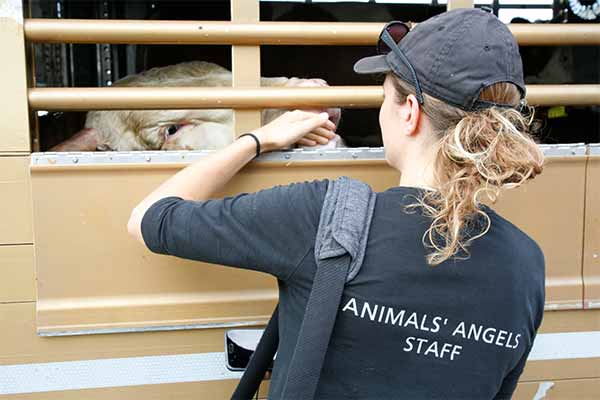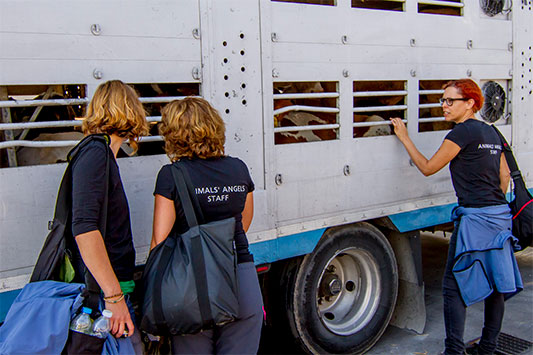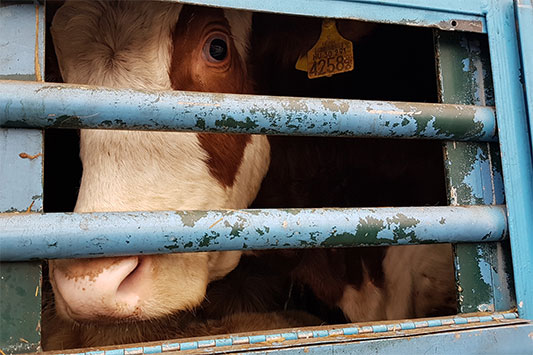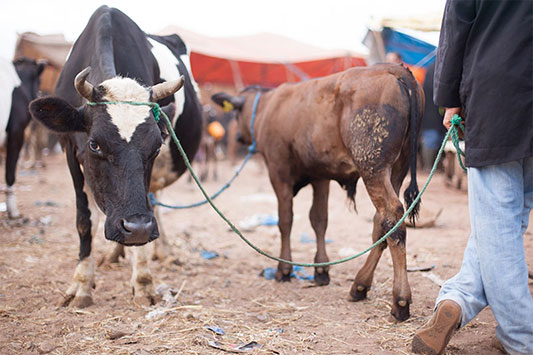Animals' Angels accompanies a transport with cattle from the Lithuanian-Polish border to a slaughterhouse in southwestern Poland. On board are 'spent milk cows', in the front compartment of the truck 'slaughter' bulls.
The cows are in a pitiful condition. Some of them still have full and inflamed udders, which must be extremely painful. They stand close together - seven adult cows with long horns per compartment. It's easy for injuries to occur there. Cow Daina has blood splatter on her belly. Another cow next to her has blood on her horn. We can't find the source of the blood splatter in the crowd inside the animal transport. With such a lack of space, the animals have no chance to lie down and rest at the same time. But this would be very important in their state of health, in order to be able to better withstand the additional transport strains. However, they would probably only lie down in the greatest need, because once again there is no bedding. The cows stand on the bare ground which is smeared with excrements and urine and therefore slippery - for the whole distance from Latvia to Poland. According to the driver and our calculations, that's over 16 hours of transport to the slaughterhouse under untenable conditions.
At another stop on the way we see Alewtina. She is lying exhausted on the wet, dirty and hard ground. We don't know if she lay down on her own or if she slipped on the greasy ground. Two cows are standing over her. During the ride, there is a danger that they will trample on Alewtina because there is no room to dodge and compensate for the vehicle's movements. Alewtina's body is emaciated and marked by the life of a 'spent milk cow'. Her angular hip bones are sore - whether only since the transport or from previous husbandry is unclear. Her look is impassive and on her tense face you can see the pain. Alewtina is one of the many victims of the dairy industry. We wonder how old she is and how many children she must have given birth to before she is now brought hundreds of kilometers to the slaughterhouse under such undignified conditions – sorted out because her life is no longer economically worthwhile. Arriving at the slaughterhouse, we try to see the unloading and talk to the operators. But in vain, they don't let us in.
We are now working on a detailed report to the responsible authorities and ministries. In it we demand thorough investigations and appropriate sanctions for those responsible for the transport and the suffering of Alewtina and the others.










